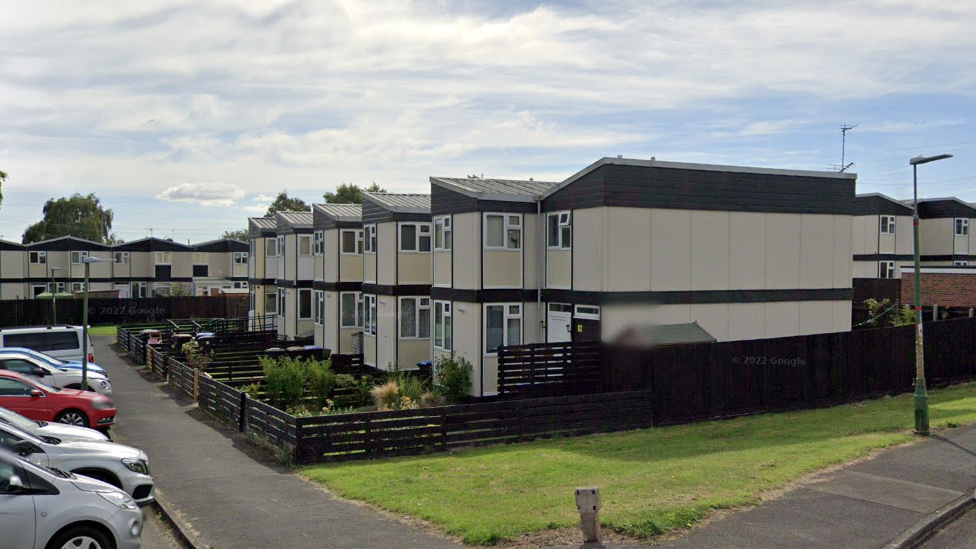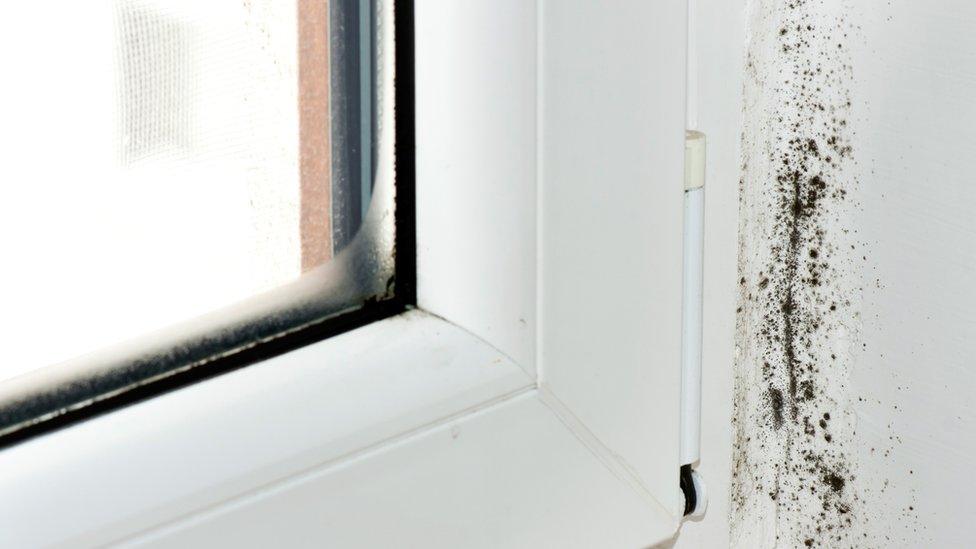Durham homes hit by damp and mould to be demolished
- Published

The homes were built in the 1960s
A row of houses will be demolished after concerns about damp, mould and poor insulation.
Fifteen properties on Farnham Road in Newton Hall, Durham, which were built in the 1960s, will be flattened.
Housing association believe housing said the homes were built as temporary accommodation and they had come to the end of their life.
Some residents are against the plans, instead calling for the properties to be brought up to modern standards.
Problems with mould and damp were previously raised by tenants, who said the homes were prone to black mould.
Last year, a consultation with tenants and homeowners took place and the decision to raze them was taken this week.

Guidance to landlords in England over mould and damp health risks is being reviewed
Nik Turner, executive director of communities and customer services at believe housing, said the decision "was not an easy one".
"While these properties have exceeded their intended lifespan, we understand they are people's homes and this is an emotive issue," she said.
Ms Turner said that tenants had "recognised" the amount of work involved to "bring the homes up to modern standards", which it had "carefully considered".
"These would be disruptive for tenants, difficult to deliver and would represent poor value for money", she added.
The housing association said none of its tenants, or homeowners, would be without anywhere to live.
It said customers would be compensated when they moved and financial support for the cost of relocating would be provided.
It also said it would be contacting those who owned their own homes individually.
The homes were built for workers at the former passport office in Durham.
They are known as Calder homes, which are factory built and then finished on site with timber frames and asbestos cladding.
The concerns relating to damp and mould come after ministers said guidance to landlords in England over such risks would be reviewed.
Awaab Ishak, two, died from a respiratory condition caused by exposure to mould at his Rochdale home, an inquest found.

Follow BBC North East & Cumbria on Twitter, external, Facebook, external and Instagram, external. Send your story ideas to northeastandcumbria@bbc.co.uk, external.
Related topics
- Published2 February 2023

- Published13 February
